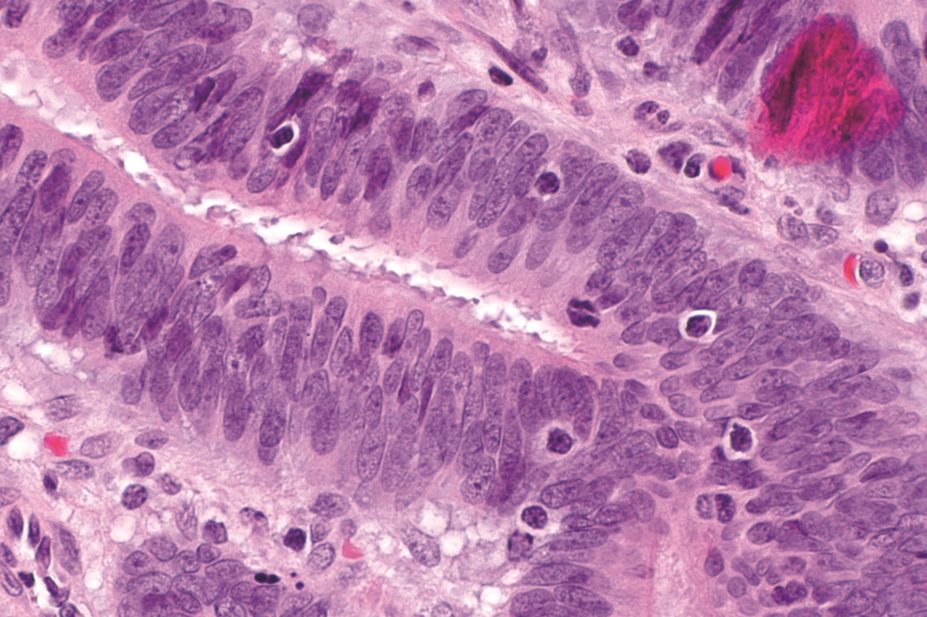
Nephron / Wikimedia
Researchers have found that the regular consumption of low-dose aspirin is linked with a modest but significant fall in the risk of cancer, primarily because of its protective effect against gastrointestinal tract cancers.
By following the progress of 135,965 people in two ongoing prospective studies, researchers found that aspirin, taken for at least six years, was associated with a 3% lower incidence of developing any type of cancer (relative risk [RR] 0.97; 95% confidence interval [CI] 0.94–0.99). This reduction was mostly owing to a 15% lower risk of gastrointestinal tract cancers (RR 0.85; 95% CI 0.80–0.91) and a 19% lower risk of colorectal cancers (RR 0.81; 95% CI 0.75–0.88).
In recent years, there has been a growing body of evidence that suggests regular aspirin use can prevent the development of gastrointestinal cancers. But most of this evidence has come from randomised control trials that were intended to examine the benefit of aspirin for cardiovascular disease. This new research, which analyses data from cohort studies that started in the 1970s and 1980s in the United States, reveals more insight into real-world outcomes.
Reporting their results in Jama Oncology
[1]
on 3 March 2016, the researchers add that aspirin can reduce the risk of gastrointestinal cancers for people who undergo preventative screening for the disease. In people aged over 50 years who had undergone an endoscopy, 18 additional colorectal cancers per 100,000 person-years (PAR, 8.5%) could be prevented by regular aspirin use. In those that did not take part in preventative screening, 33 colorectal cancers per 100 000 person-years (PAR, 17.0%) could be been prevented.
“This finding is important because it suggests that aspirin use may complement colorectal cancer (CRC) screening and may have an absolute benefit regardless of endoscopy status, a critical insight that few other studies have provided thus far,” say the authors of an accompanying editorial, also published in Jama Oncology
[2]
.
Uptake of screening is sub-optimal, comment the authors. “Aspirin may serve as a relatively low-cost primary prevention modality to complement the well-established but underused preventive benefits of CRC screening with polypectomy,” they say.
The authors of the research defined regular aspirin use as taking aspirin at least twice a week. All aspirin intake was converted into a standard tablet (325mg) dose for fair comparison across tablet strengths. The protective effect of aspirin was evident with a regular intake of 0.5 to 1.5 standard tablets over the course of a week, compared with no aspirin use.
But protection against colorectal cancer increased at higher aspirin doses. For CRC specifically, compared with no reported aspirin use, the multivariable RRs were 0.86 (95% CI 0.76–0.97) for 0.5 to 1.5 standard aspirin tablets per week; 0.84 (95% CI 0.75–0.93) for 2 to 5 tablets per week; 0.76 (95% CI 0.68–0.86) for 6 to 14 tablets per week; and 0.61 (95% CI 0.45–0.81) for at least 15 tablets per week (P<0 .001 for trend).
Nicola Smith, senior health information officer at Cancer Research UK, says more information is needed. “This study adds to what we know about the potential for long-term aspirin use to reduce the risk of cancer, particularly bowel cancer, though it didn’t consider the risk of side effects such as internal bleeding,” she says.
“We need to understand more about who would get the best balance of benefits and risks of side effects, how much aspirin they should take, and for how long. For the moment, anyone thinking of regularly taking aspirin should speak to their GP,” she adds.
In 2015, the US Preventive Services Task Force recommended regular use of aspirin for prevention of colorectal cancer in people aged 50–69 years who were also at risk of cardiovascular disease.
References
[1] Cao Y, Nishihara R, Wu K, et al. Population-wide impact of long-term use of aspirin and the risk for cancer. JAMA Oncology 2016. doi: 10.1001/jamaoncol.2015.6396
[2] Vilar E, Colbert Maresso K & Hawk ET. Aspirin for cancer prevention: one step closer. JAMA Oncology 2016. doi: 10.1001/jamaoncol.2015.6395


